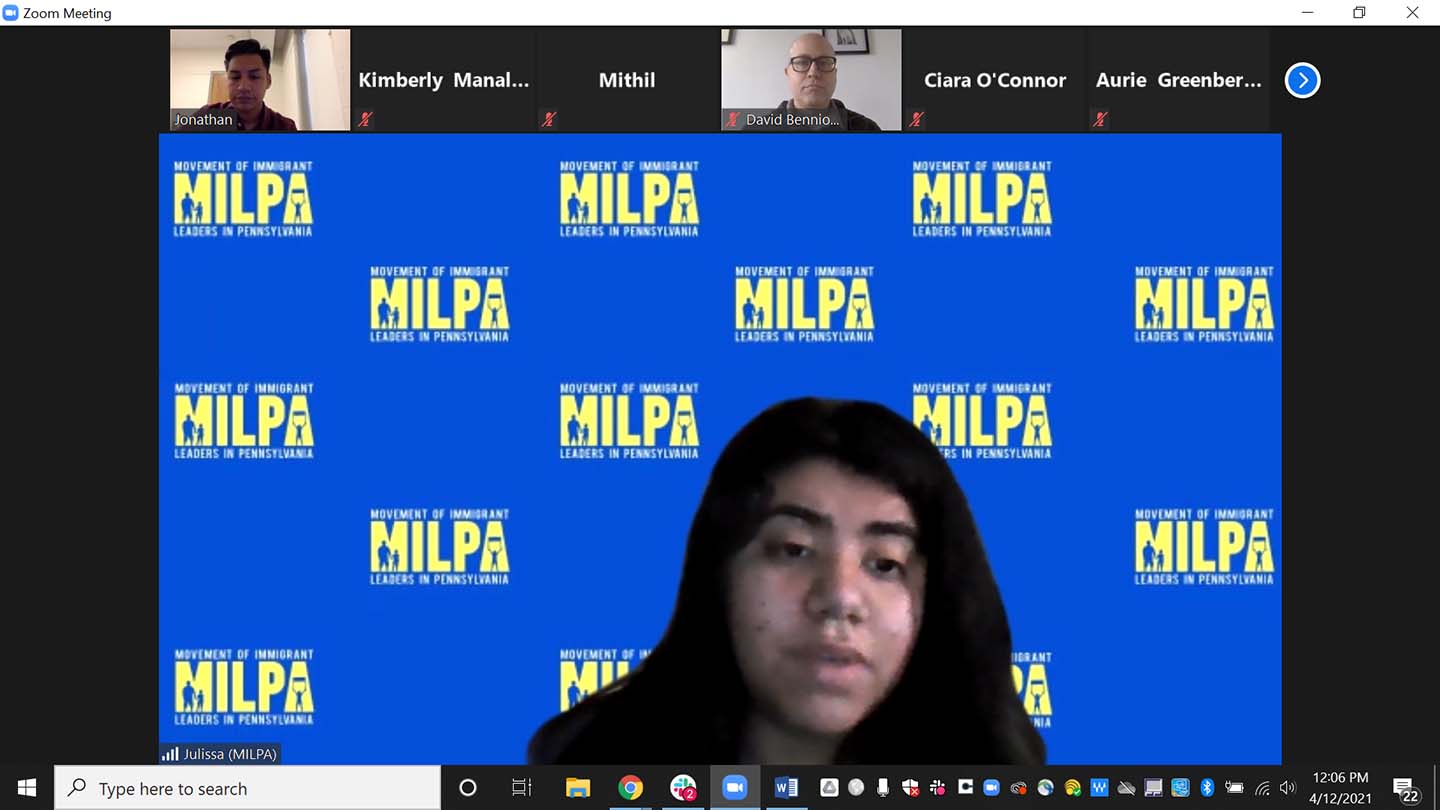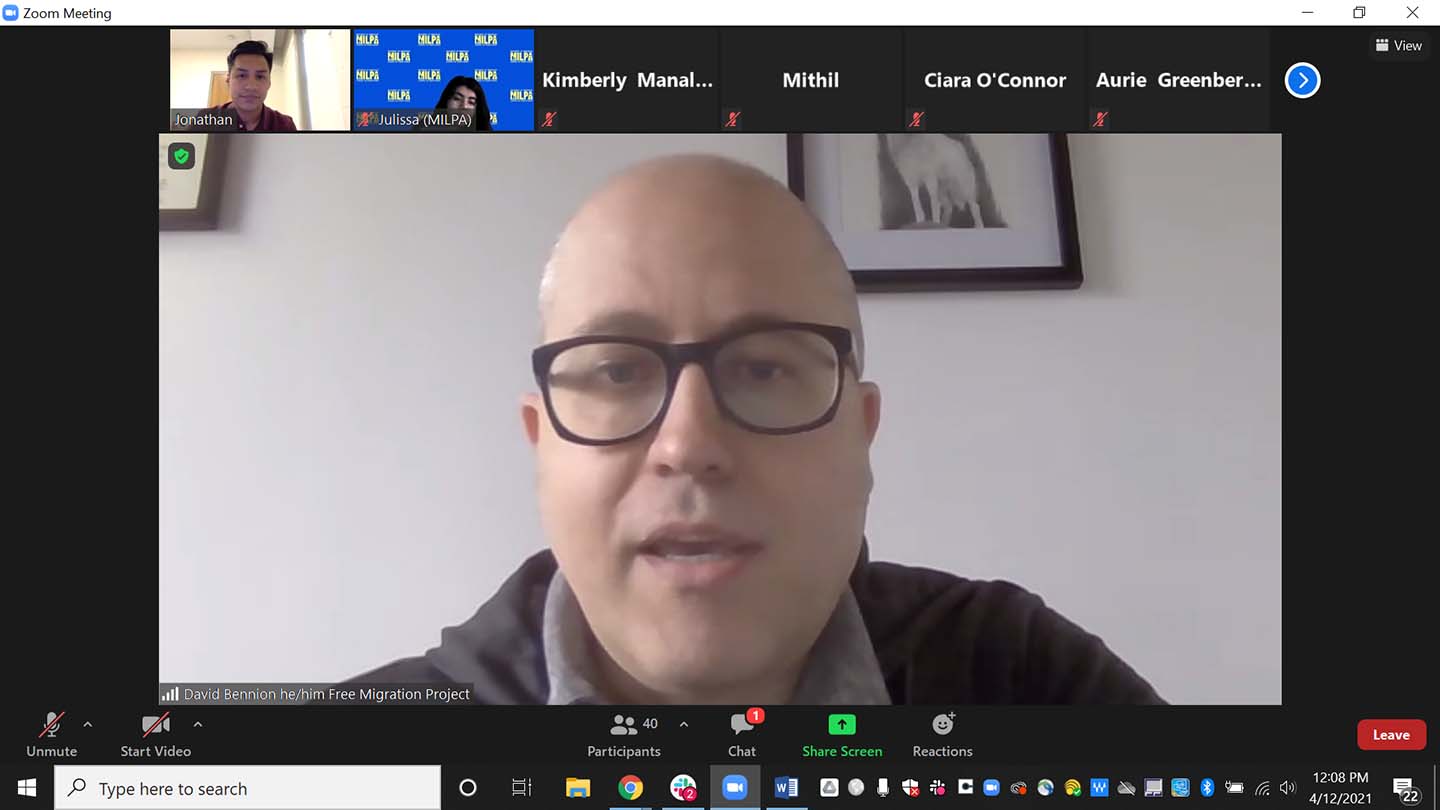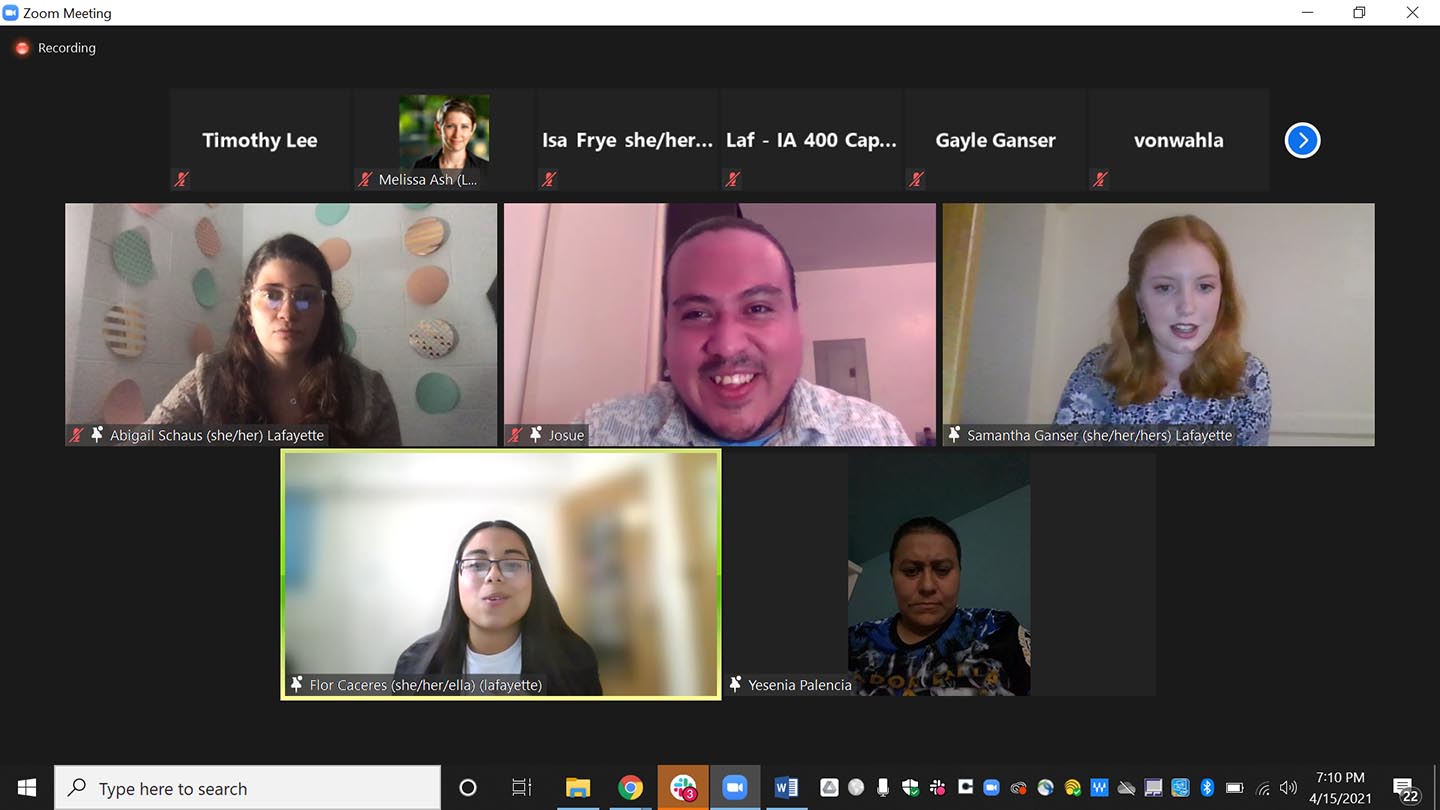ICE awareness and action
By Stephen Wilson
Cognitive bias, systematic errors in thinking when people process information in the world around them that then impact decisions and judgments they make, is rife in immigration policies.
Migrants around the globe are often classified as criminals, infidels, cheats, lazy, or dumb. When dehumanized, people are no longer varied and precious individuals but solid blocs who can more easily be feared, misunderstood, and hated.
Students on campus over the course of the academic year have worked to shed light on the plight of many people facing difficult circumstances in the Immigration and Customs Enforcement (ICE) system.
In the fall, a panel including students, staff, and guest faculty worked to educate those in attendance about the different status assigned to those seeking asylum by defining differences between refugees and immigrants. The panel also discussed the pains of internment that have included family separation, forced sterilization, cultural barriers, and malnourishment.
In the spring, students held Migration Week, which included a full slate of events and workshops, and two Landis-hosted events—a panel and lecture.
The panel included David Bennion, immigration lawyer and executive director of the Free Migration Project, and teenage leader Julissa Morales from Movement of Immigrant Leaders in Pennsylvania (MILPA).

Julissa Morales from Movement of Immigrant Leaders in Pennsylvania.
Each speaker explained his and her background as well as organization. Discussion centered around how to build awareness and get people of various backgrounds involved in the cause.

David Bennion, immigration lawyer and executive director of the Free Migration Project
“We were lucky to partner with two local organizations that shared their stories and work, and directly showed Lafayette students how they can make a difference,” says panel organizer Ciara O’Connor ’22.
“It is important to start and normalize the conversations on harder topics like this,” says Kimberly Manalang ’21. “This is not the end. This is just the start of ‘Having the Conversation on ICE’ because how can we truly understand anything if we continuously sugarcoat the situation at hand?”
The lecture brought two guests from BorderLinks, Josue Saldivar, program organizer, and Eddy Palencia, who suffered the trials of immigrating to the U.S.

Palencia’s story is a powerful testament to the struggles to cross the border and navigate a system that is far from easy or welcoming.
As a lesbian, Palencia fled violence and persecution in Guatemala, survived the “Beast” train ride through Mexico, and navigated a sweltering desert before being caught and detained for over a year. During detainment, Palencia sought support to overcome denials from the immigration court in order to remain safely in the U.S.